The success of a sports movie depends on how close it can get to making you feel the thrill of an actual match…except, there is more it has to accomplish.
It is not just about those few hours of excitement wrapped in anxiousness. It is also about the back story, the build-up, what made the victory historic, what all was at stake, the endless practice sessions to pull off that one shot, the tears, the laughter, the persistence.
I am not even done yet, and there are already a few too many boxes to tick. With Chak De! India, Hindi cinema showed that all of this can be done with one project.
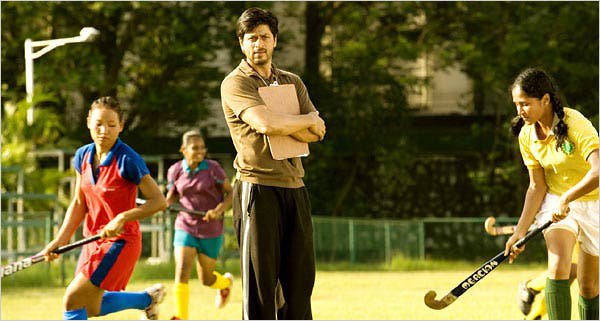
Now of course, we have made many other great sports movies. You have Lagaan, Dangal, Bhaag Milkha Bhaag, MS Dhoni: All of them are significant in their own right.
However, I have a special place in my heart for Chak De! India. The reason, probably, is its theme, redemption.
It is much like sports itself, where heroes fall often, and the test of their character is in getting up. Against expectations and hopes, sometimes even their own.
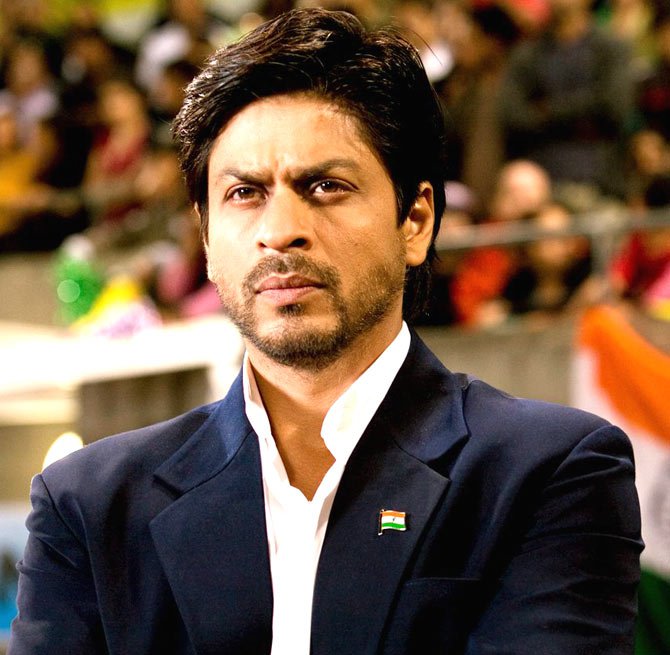
The movie is inspired by the true story of Mir Ranjan Negi, the Indian goalkeeper who conceded 7 goals in the Asian Games final (1982) against arch-rivals Pakistan. He was the person on whom Shah Rukh’s character, Kabir Khan, was based.
Negi became a symbol of disgrace after his nightmarish performance. However, he returned to the field 16 years later, this time as the goalkeeping coach of the Indian women’s hockey team, and helped the underdogs win the 1998 Asian Games gold.
Unlike what’s shown in the movie, he was eventually sacked but returned again, and got the team to win the Commonwealth Games gold in 2002.
In Chak De! India, this was taken as a premise and fictionalised into a tale of winning back one’s lost honour.
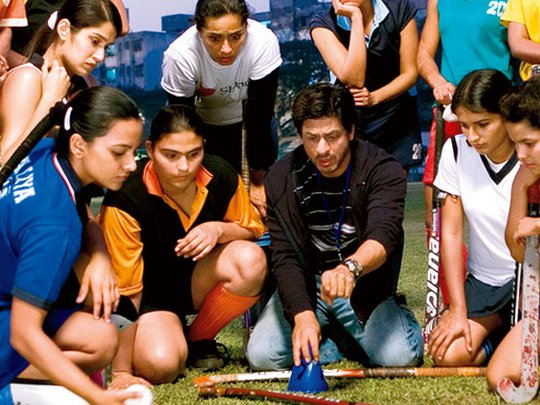
Kabir Khan is called a traitor after the disappointing loss against the neighbours. People write gaddar outside his house. He can’t step out without getting stared at.
Having spent many years facing this ridicule, he does what one needs to do in such a situation. He picks up his scooter, and goes back to the place where the horror started: The hockey stadium.
He says he wants to coach the Indian national women’s team, which is comprised of a bunch of girls whom no one takes seriously.
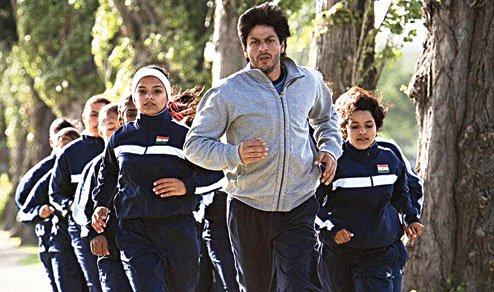
Kabir Khan sets on a mission to change that. And on his way, he fights. He fights his demons, he fights the system, he fights with the team as well…but he doesn’t give up.
He never parks the scooter.
Meanwhile the women, from all across the country, are also on their own journeys. Patriarchy is their biggest challenge, something that stops the flow of love they have for their sport.
However, one small step after another, they reach the goal. They overcome lack of motivation, hopelessness and above all jealousy to get those shining medals for their country.
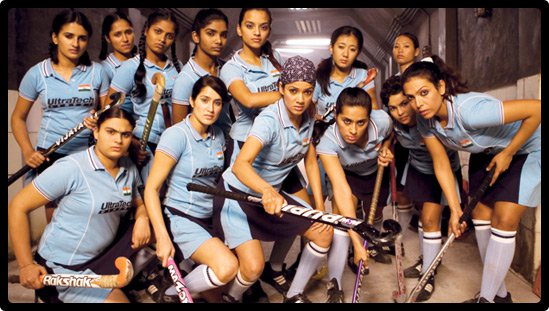
Which brings me to another very important factor that makes the movie so impactful. Portrayal of female friendships.
In one of my favourite scenes, Komal (played by Chitrashi Rawat), a young woman from Haryana, tells her teammate Preeti (played by Sagarika Ghatge), “Dikha de uss launde ko“, as both of them run towards the goal-post.
Preeti ends up scoring an important goal and in that moment, the bitterness between them, that had lasted for months, just vanishes and ‘who will be the highest scorer’ is something not important anymore.
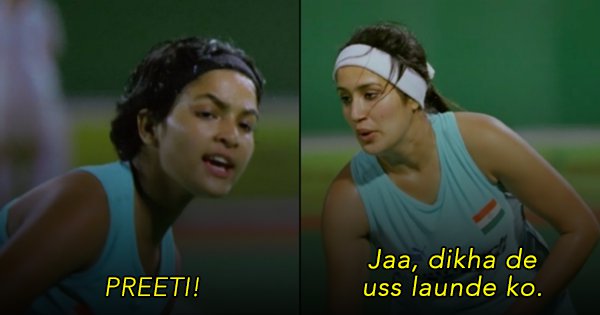
I truly feel there are very few moments in Hindi cinema which show female bonding this beautifully.
Something similar happens between Vidya (played by Vidya Malvade) and Bindiya (played by Shilpa Shukla). Vidya is an excellent player but relatively inexperienced. Bindiya is a veteran but a rebel.
So when Kabir decides to make Vidya the captain, Bindiya just disocciates herself from the game.
She sits on the side and watches, until the ache to play becomes too strong and she realises she must return, for the tricolour and its prestige.
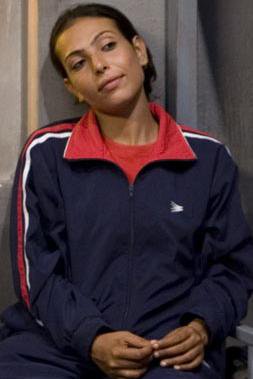
From that point on, everything turns around. So these girls are not shown as ever-sacrificing perfect humans, they are shown as real people with real emotions.
They are flawed, just like everyone else, but not bad at heart.
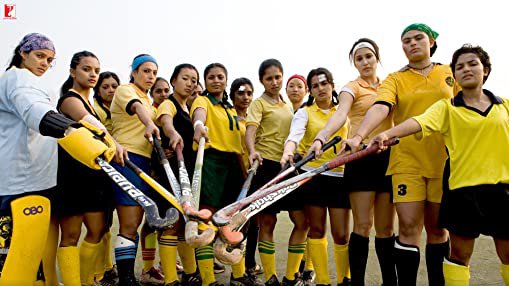
Chak De! India is shows what a woman can do when she decides to take charge of her own life.
An example of this is Preeti Sabarwal, who is engaged to Abimanyu Singh (played by Vivan Bhatena), the vice-captain of the Indian cricket team.
He is a guy who dismisses her dream of representing India internationally, and when she tries to explain that hockey is important to her, stresses that it is not cricket.
This infuriates Preeti and she leaves him. For good. So when he comes to the airport after India’s victory in the final and asks her to marry him, she doesn’t take a minute to say no.
13 years on, that scene still makes me go ‘yes, woman’.
Chak De! is an emotional ride. You go from feeling proud to sad to energised within a matter of few moments. It is a mixed bag of emotions.
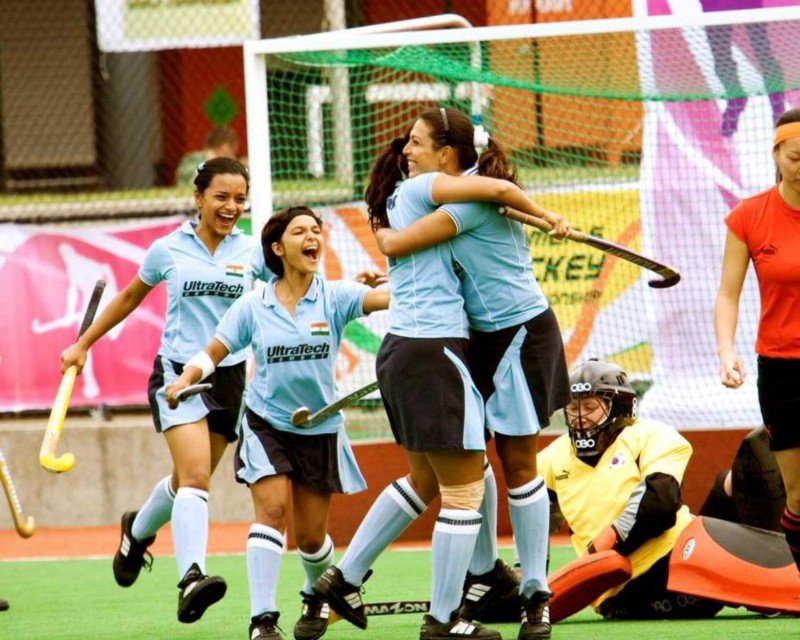
Speaking of which, it would remiss to not talk about the famous ‘sattar minute’ speech.
Till date, I haven’t been able to figure out what is it about the monologue that hits me the most. Is it Shah Rukh’s acting? Is it the brilliant writing? Is it the timing of it in the movie?
It’s tough to tell, I don’t think I want to either.
Chak De! India is like a historic match your parents tell you about. It is that bowling spell which you can never get over, it is that shot you can’t get out of your head.

















